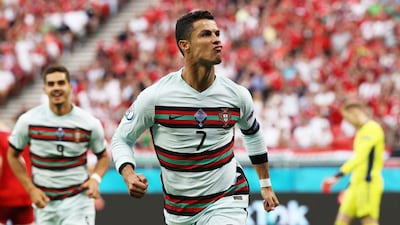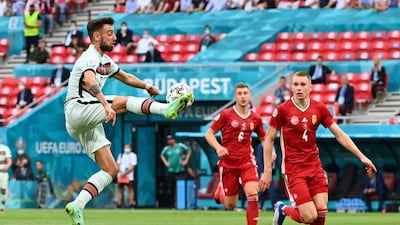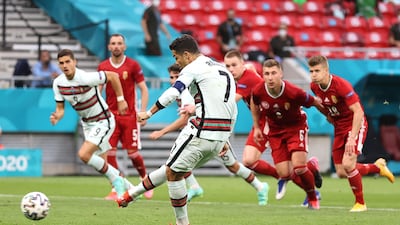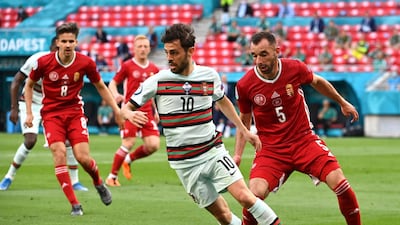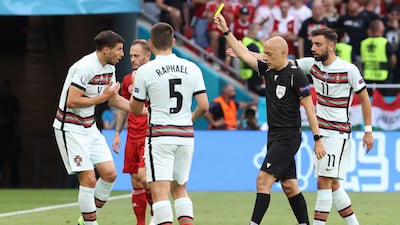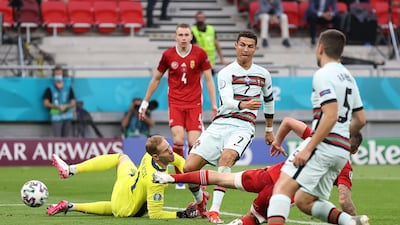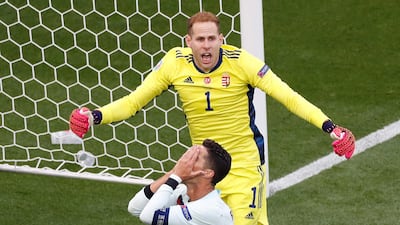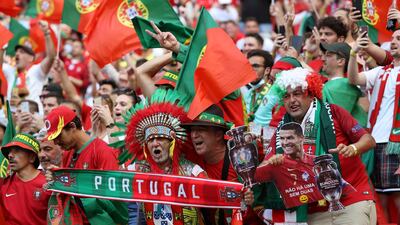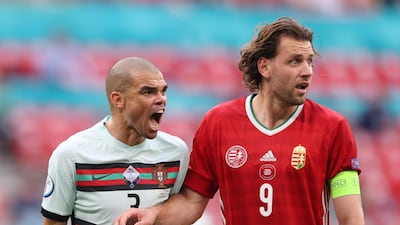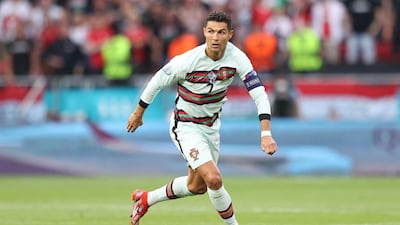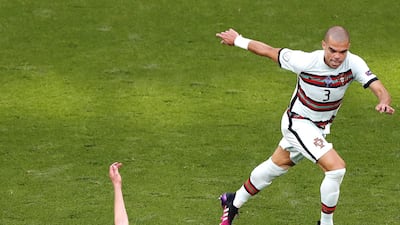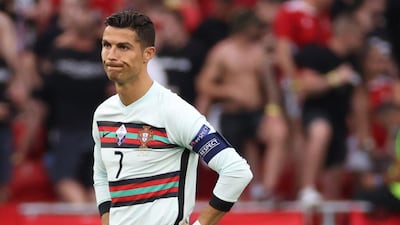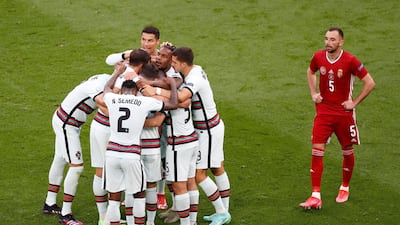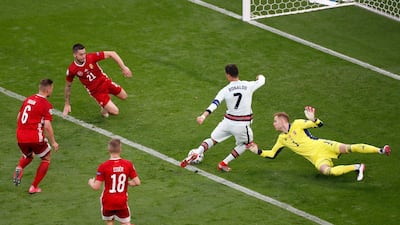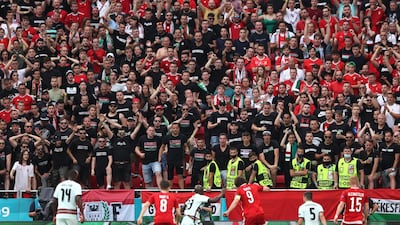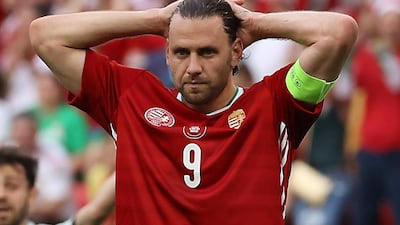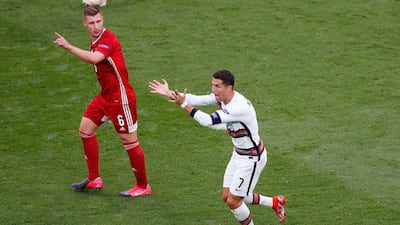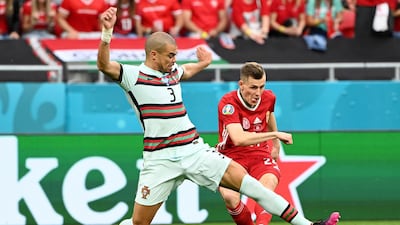Cristiano Ronaldo conquered Europe from the sidelines. He was the injured, hobbling unofficial coach, urging his teammates on before Eder scored the winner in the Euro 2016 final.
In another sense, he became the king of Europe on Tuesday. The record scorer in the histories of Real Madrid, Portugal and the Champions League became the outright leader in European Championship history.
A late brace took him past Michel Platini and to 11 goals. The comparison is of opposites; Platini’s nine goals all came in 1984; no one has ever dominated a European Championship like he did then but, like many of Ronaldo’s records, his is a triumph of relentlessness. He has scored in this competition at 19 and at 36. There was something symbolic in the fact he had to wait 87 minutes before scoring his first goal in the 3-0 win over Hungary.
Rewind 17 years and his first strike on this stage was closer in time to Marco van Basten’s volley against the Soviet Union than today. Ronaldo has played in five European Championships and scored in all. His impact was already such that only he and Paolo Maldini have been named in the team of three different tournaments. He had been picked in Uefa’s all-time European Championships XI even before the 2016 triumph.
He has been two players in one, the showman and the statistician, the youngster defined by flicks and tricks and the veteran with a single-minded focus on finishing. His former captain Roy Keane, a man more given to dispensing criticism than praise, said: “The guy is a genius, he is one of the greatest players of all time, he is a machine, a beast.”
And yet he had an inauspicious start. Ronaldo’s Euro 2004 debut was the curtain-raiser against Greece. Luiz Felipe Scolari had gone with the old guard and Portugal were 1-0 down before the prodigy came on. He promptly conceded a penalty to make it 2-0.
His eventual strike was a consolation goal, assisted by Luis Figo, whose mantle as Portugal’s greatest winger he was to assume. He scored again in the semi-final win over Holland, offering early evidence of his aerial ability; maybe no flair player has ever had such a prodigious leap.
His first two goals for Portugal came in a European Championships; so did his two most recent. That he got exactly 100 in between is testament to his ridiculous rate of scoring. One came in Euro 2008, against the Czech Republic, and if that felt a slight return after a 42-goal season for Manchester United, his three assists made him the tournament’s most creative player.
In Euro 2012, there was a clinical match-winning brace against Holland, World Cup finalists two years earlier, with each offering evidence of his pace to take Portugal through and then a quarter-final decider against the Czechs; it was another superb header and made him the tournament’s joint top scorer.
Euro 2016 brought three more goals. A group-stage double spared Portugal defeat to Hungary and the first, an impudent backheeled flick, ranks as his finest goal in this tournament. Another towering header against Wales in the semi-final took Portugal to a second final; for the second time, Ronaldo, with three assists, was the scorer who doubled up as the joint best creator.
Only Karel Poborsky has ever registered more assists at the European Championships than Ronaldo. If a selfish streak could propel him past Ali Daei’s record of 109 international goals, a selfless one could help him earn another unique distinction. A man defined by his rivalry with Lionel Messi could reign supreme in a competition his arch-enemy cannot enter.
